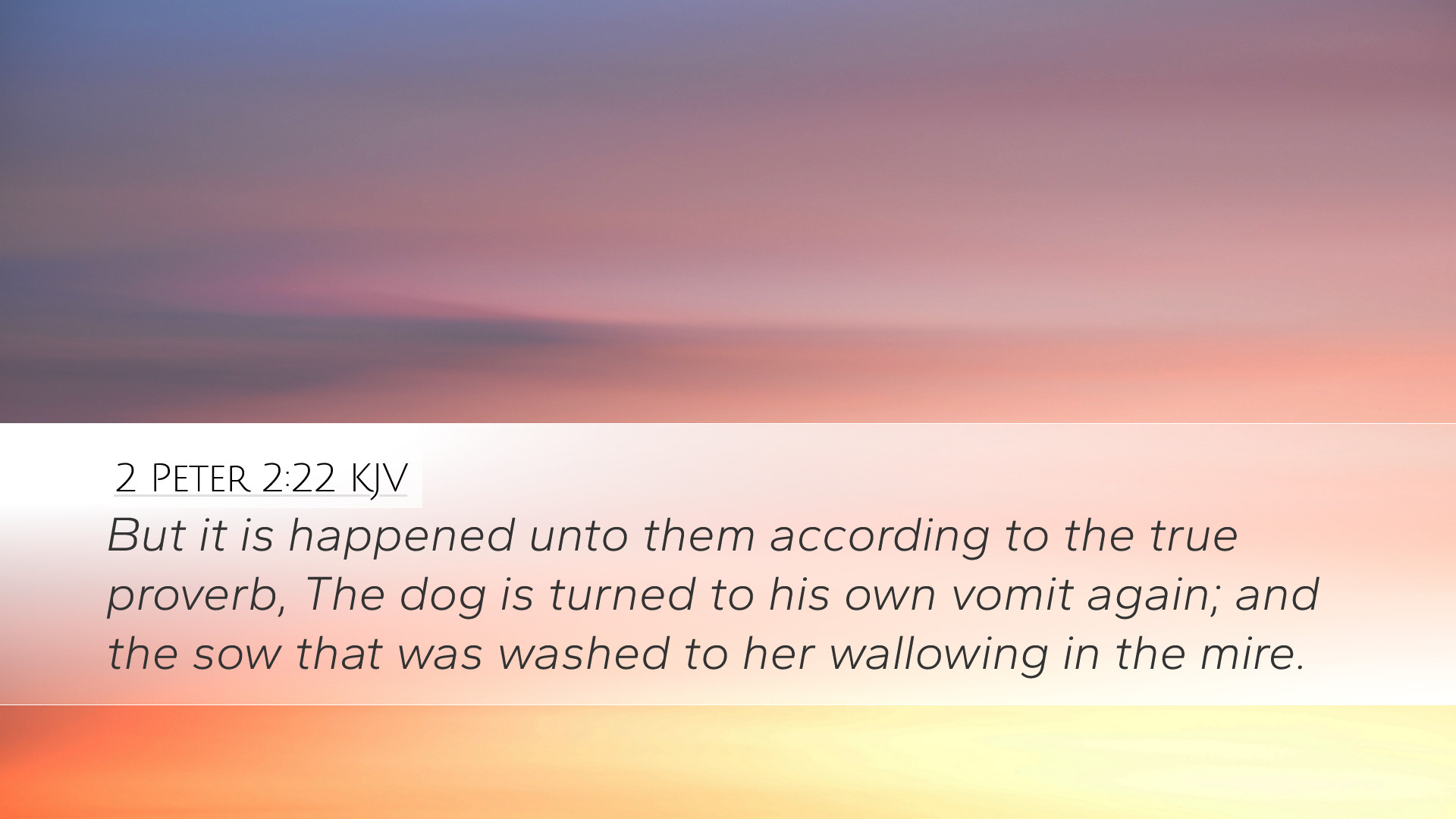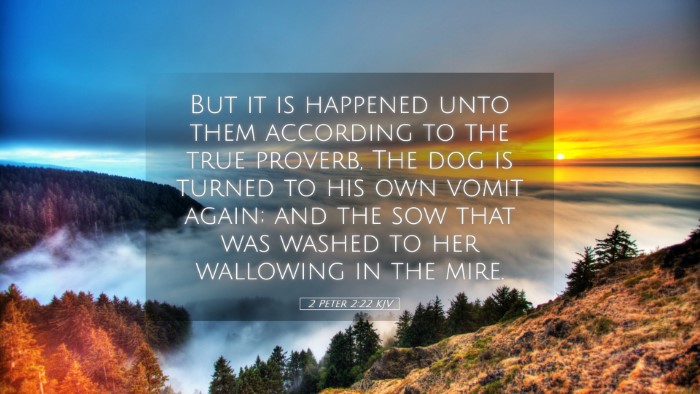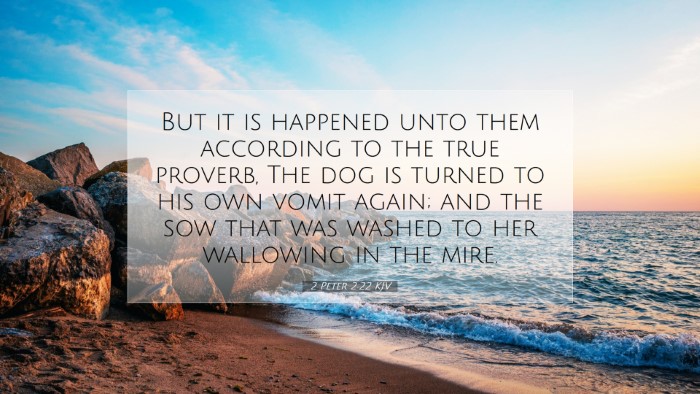Old Testament
Genesis Exodus Leviticus Numbers Deuteronomy Joshua Judges Ruth 1 Samuel 2 Samuel 1 Kings 2 Kings 1 Chronicles 2 Chronicles Ezra Nehemiah Esther Job Psalms Proverbs Ecclesiastes Song of Solomon Isaiah Jeremiah Lamentations Ezekiel Daniel Hosea Joel Amos Obadiah Jonah Micah Nahum Habakkuk Zephaniah Haggai Zechariah Malachi2 Peter 2:22
2 Peter 2:22 KJV
But it is happened unto them according to the true proverb, The dog is turned to his own vomit again; and the sow that was washed to her wallowing in the mire.
2 Peter 2:22 Bible Commentary
Commentary on 2 Peter 2:22
2 Peter 2:22 states: "But it has happened to them according to the true proverb, 'A dog returns to his own vomit,' and, 'A sow, having washed, to her wallowing in the mire.'" This verse serves as a stark reminder of the consequences of apostasy and the grave danger of returning to a sinful lifestyle after experiencing the truth of the Gospel.
Context and Background
To fully grasp the meaning of this verse, we must consider the context in which Peter writes. The entire chapter addresses the presence of false teachers and the peril of their influence. Peter warns the church about individuals who distort the truth and lead others away from authentic faith, likening them to animals that return to their filth.
Insight from Matthew Henry
Matthew Henry elaborates on the metaphor of the dog and the sow, asserting that these examples illustrate the natural inclination of some individuals to revert to their former sinful habits. He emphasizes that once a person has genuinely received the grace of God, to turn back is a grievous and shameful act, akin to a dog returning to its vomit. This depicts the repulsion and foolishness of reverting to sin after knowing the liberation it brings.
Albert Barnes' Perspective
Albert Barnes provides a detailed exposition of the proverb quoted by Peter. He reflects on its origin, noting that it is found in Proverbs 26:11 and serves to illustrate the irrationality of abandoning the knowledge of Christ and returning to a state of spiritual ignorance. Barnes argues that the apostates have not only tasted of the goodness of the Word but have also recognized the freedom from sin, which makes their return to worldly ways all the more tragic.
Adam Clarke's Commentary
Adam Clarke emphasizes the severity of the warning given in this passage. He notes that the “dog” and “sow” represent two types of persons who fail to grasp the gravity of their return to folly. Clarke asserts that those who revert to their previous sinful lifestyles after enlightenment are like a pig that, despite being cleansed, remains drawn back into the dirt where it finds comfort. This analogy highlights the profound spiritual decay that results from abandoning one’s faith.
Theological Implications
The theological implications of 2 Peter 2:22 are vast. This verse addresses the concepts of sin, redemption, and the struggle inherent in the Christian life.
- Apostasy: The nature of turning away from the truth is addressed emphatically in this text, indicating that apostasy poses a significant risk for believers.
- Spiritual Blindness: Those who revert are often blinded to the transformation they have experienced through Christ and willingly return to their bondage.
- Consequences of Sin: This passage serves as an ominous reminder that while forgiveness is always available, returning to sin can lead to a deeper entrenchment in ungodliness.
Pastoral Applications
For pastors, 2 Peter 2:22 highlights the importance of shepherding their flocks diligently to protect against false teachings and the danger of returning to a life of sin. Here are some applications:
- Teaching on Holiness: Regularly emphasize the call to holiness and perseverance in faith, demonstrating what genuine transformation looks like.
- Addressing Doubts: Provide pastoral care to those struggling with doubts about their faith or contemplating a return to their former ways.
- Community Support: Foster a church environment conducive to accountability, where members can support one another in their Christian journeys.
Final Reflections
In conclusion, 2 Peter 2:22 serves as a powerful reminder of the dangers inherent in the Christian journey. The analogies of the dog returning to its vomit and the washed sow demonstrate the spiritual tragedy of returning to sin after experiencing grace. It calls for a deeper understanding of the weight of sin and an earnest pursuit of righteousness.
By recalling the wisdom of Matthew Henry, Albert Barnes, and Adam Clarke, we can appreciate the comprehensive warning against apostasy, creating an environment of vigilance and encouragement within the church body.


